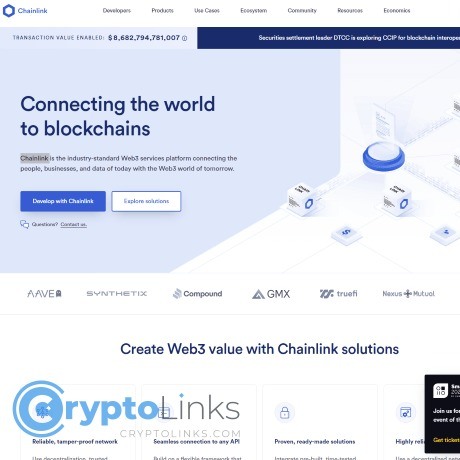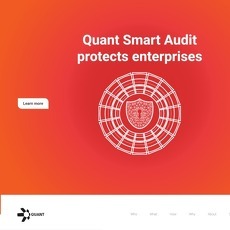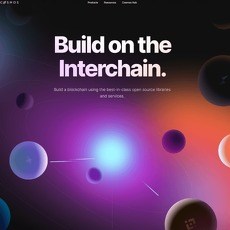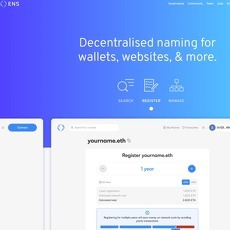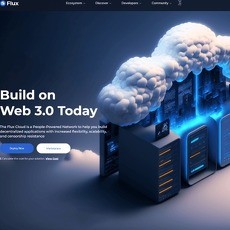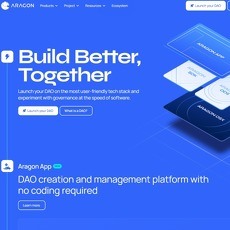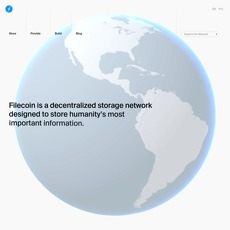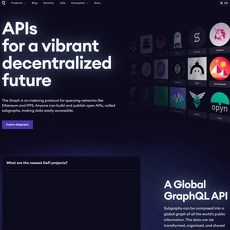Chainlink Review
Chainlink
chain.link
Getting Real With Chainlink: A No-Hype Review
In the buzzing realm of decentralized finance (DeFi), Chainlink has emerged as a notable player, promising to bridge the gap between off-chain data and on-chain applications. With the DeFi space experiencing a skyrocket in innovations and investments, the crucial role of reliable data cannot be overstated. But how does Chainlink fare in delivering its promises? Is it the missing link in the burgeoning blockchain space? Let's cut through the hype and have an in-depth look at Chainlink.
The Rundown on Chainlink
What is Chainlink?
At its core, Chainlink is a decentralized oracle network that endeavors to connect smart contracts with real-world data. It's a bridge that aims to broaden the scope and utility of smart contracts on the blockchain, by enabling interaction with external data feeds, web APIs, and traditional bank payment systems.
Why Chainlink?
The crux of the matter lies in the challenge of fetching off-chain data onto the blockchain in a trustworthy manner. Smart contracts thrive on data to trigger and execute agreements, but they face a bottleneck when it comes to accessing external data. This is where Chainlink steps in with its decentralized oracle network to fetch, verify, and feed the required data to smart contracts.
The Guts: How Does Chainlink Work?
Oracles and Why They Matter
Oracles are the linchpins that provide smart contracts with the external data they crave. They act as the bridge between the blockchain and the outside world, enabling smart contracts to interact with data outside their network in a secure and reliable manner.
Decentralized Oracle Networks
Chainlink decentralizes the oracle mechanism to mitigate the risks associated with a single point of failure. By utilizing a network of oracles, Chainlink ensures that data is fetched and verified from multiple sources, ensuring a higher degree of accuracy and reliability.
Chainlink in Action
Case Studies
Various case studies and partnerships testify to Chainlink’s capabilities. For instance, its collaboration with Google Cloud illustrated the potential for real-time analytics and the enriching of big data processes on-chain. Additionally, its partnership with SWIFT showcases how Chainlink can bridge the traditional banking sector with the blockchain space.
Integration Woes and Triumphs
Chainlink's journey towards integration with various blockchain networks hasn’t been devoid of challenges. However, its triumphs overshadow the hitches. The capability to provide reliable data feeds to multiple blockchain networks is a testament to Chainlink’s robust architecture and forward-thinking approach.
The Dough: Chainlink’s Tokenomics
LINK Token: What's the Deal?
The LINK token is the lifeblood of the Chainlink ecosystem, incentivizing node operators to provide accurate data. It's not just a currency, but a facilitator of the decentralized oracle network ensuring the reliability and accuracy of data delivered to smart contracts.
Price Performance
LINK’s price trajectory over the years has been reflective of Chainlink’s growing stature in the DeFi space. Though not without its fair share of volatility, LINK has held its ground amidst the competitive oracle market.
Critic’s Corner
Strengths
Chainlink’s pioneering status, coupled with solid partnerships and a robust decentralized oracle network, underscore its unique strengths. It has successfully managed to carve a niche in the DeFi space, solving real-world problems with blockchain technology.
Weaknesses
Despite its successes, Chainlink faces stiff competition from emerging oracle projects. The challenge to stay ahead in the innovation curve and maintain its dominance is palpable.
Verdict: Is Chainlink Worth the Hype?
Final Thoughts
Chainlink undoubtedly has made significant strides in bridging the off-chain and on-chain divide. Its pragmatic approach towards solving real-world problems places it in a favorable light. However, the road ahead is competitive, and sustaining the lead will demand continuous innovation.
We’ve traversed through Chainlink’s essence, dissected its working mechanism, applauded its triumphs, and acknowledged its challenges. It’s a promising project with a pragmatic vision. Now, it’s over to you, the discerning reader, to delve deeper, question, and converse. Does Chainlink resonate with your blockchain ideals? Keep the conversation ablaze in the comments below or over social media discussions.
Frequently Asked Questions about Chainlink
1. What is Chainlink?
Chainlink is a decentralized oracle network that enables smart contracts on Ethereum to securely connect to external data sources, APIs, and payment systems.
2. How does Chainlink work?
Chainlink utilizes a network of decentralized nodes to retrieve data from off-chain sources. This data is then aggregated and provided to smart contracts on the blockchain. The decentralization of oracles (data providers) ensures that the data is reliable and not subject to manipulation.
3. What is the purpose of Chainlink's LINK token?
The LINK token is used to compensate node operators for retrieving and providing data to smart contracts. It also serves as a form of collateral to ensure that node operators fulfill data requests accurately and in a timely manner.
4. How can developers integrate Chainlink into their smart contracts?
Developers can use Chainlink's library of pre-built external adapters or create their own to connect their smart contracts to off-chain data sources.
5. What distinguishes Chainlink from other oracle solutions?
Chainlink's decentralized network of oracles aims to provide more secure and reliable data to smart contracts compared to centralized oracle solutions. Its flexible architecture allows developers to customize how their smart contracts interact with off-chain data.
6. What partnerships does Chainlink have?
Chainlink has partnered with numerous organizations across different industries, including Google Cloud, Oracle, and SWIFT, to enhance the functionality and utility of smart contracts.
7. Where can I buy and store LINK tokens?
LINK tokens can be purchased on various cryptocurrency exchanges like Coinbase, Binance, or Kraken. They can be stored in a cryptocurrency wallet that supports ERC-20 tokens.
8. What are some notable projects using Chainlink?
Various DeFi projects, insurance platforms, and gaming applications utilize Chainlink to access real-world data securely. Examples include Aave, Synthetix, and Nexus Mutual.
9. Is Chainlink secure?
Chainlink employs a decentralized network of oracles to mitigate the risks associated with single points of failure. Additionally, its use of external adapters and service agreements further enhances the security and reliability of the data provided.
10. How can I become a Chainlink node operator?
To become a Chainlink node operator, you'll need to run a Chainlink node, have a certain amount of LINK tokens for staking, and follow the guidelines provided by Chainlink for node operators. You can find more information on Chainlink's official documentation.
11. Where can I learn more about Chainlink?
You can learn more about Chainlink by visiting their official website, reading their whitepaper, or joining their community on platforms like Discord, Reddit, or Telegram.
Chainlink: A Quick Glance at Pros and Cons
Pros
- Decentralized Oracles: Chainlink's decentralized oracle network reduces the risk of data manipulation and single points of failure, which is a common issue with centralized oracle solutions.
- Real-world Data Integration: Chainlink facilitates the interaction between smart contracts and real-world data, broadening the scope and utility of blockchain applications.
- Robust Partnerships: With partnerships with big names like Google Cloud and Oracle, Chainlink showcases strong industry collaboration which can foster further growth and integration.
- Active Development: Chainlink has a committed development team and an active community, which continuously work towards improving the platform and expanding its capabilities.
- Ease of Integration: Developers find it relatively straightforward to integrate Chainlink with their smart contracts, thanks to a well-documented process and helpful community resources.
Cons
- Competitive Space: The oracle space is highly competitive with new projects emerging with unique solutions, which could potentially overshadow Chainlink's offerings.
- Scalability: As with many blockchain projects, scalability can be a concern. As demand for Chainlink’s services grows, ensuring the network can handle increased load is crucial.
- Token Volatility: The LINK token has experienced price volatility in the past, which might concern investors and node operators.
- Complexity: The concept and technology behind Chainlink can be complex for individuals new to blockchain and decentralized applications, posing a barrier to broader understanding and adoption.
- Cost: Running a Chainlink node or utilizing its services entails costs, which could be a barrier for smaller projects or individual developers.
Conclusion
Chainlink stands as a trailblazer in the DeFi landscape, effectively bridging the gap between smart contracts and real-world data through its decentralized oracle network. Its robust architecture, strategic partnerships with giants like Google Cloud and SWIFT, and seamless integration capabilities make it a cornerstone for developers building reliable, data-driven blockchain applications. While challenges like competition, scalability, and complexity for newcomers persist, Chainlink’s commitment to innovation and transparency keeps it at the forefront of the oracle space. Ready to harness the power of decentralized data? Explore Chainlink’s official website to dive into its tools, integrate with your dApp, or join its vibrant community. For more no-hype crypto insights and reviews, stick with Cryptolinks.com—keep learning, keep building, and join the conversation today!

